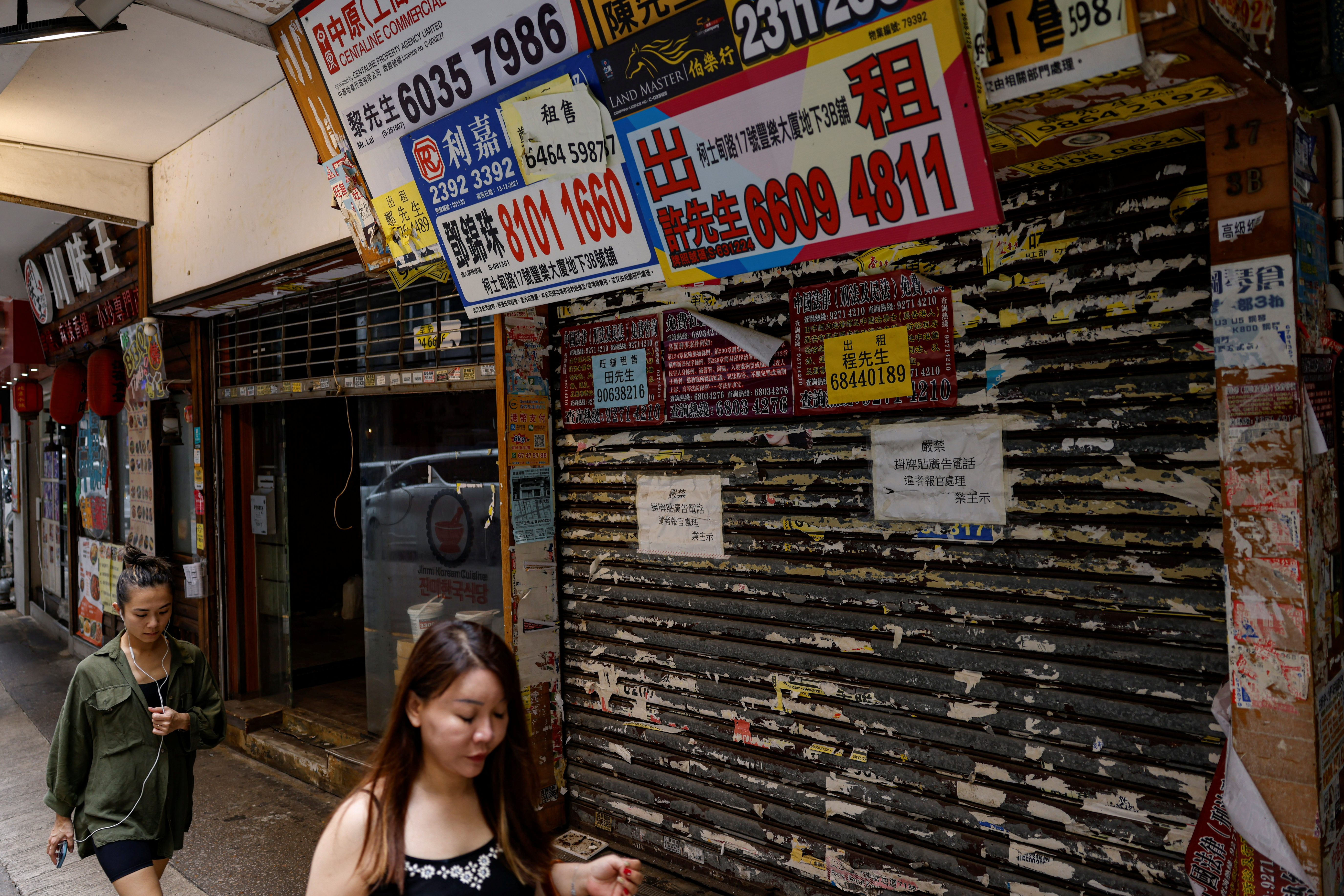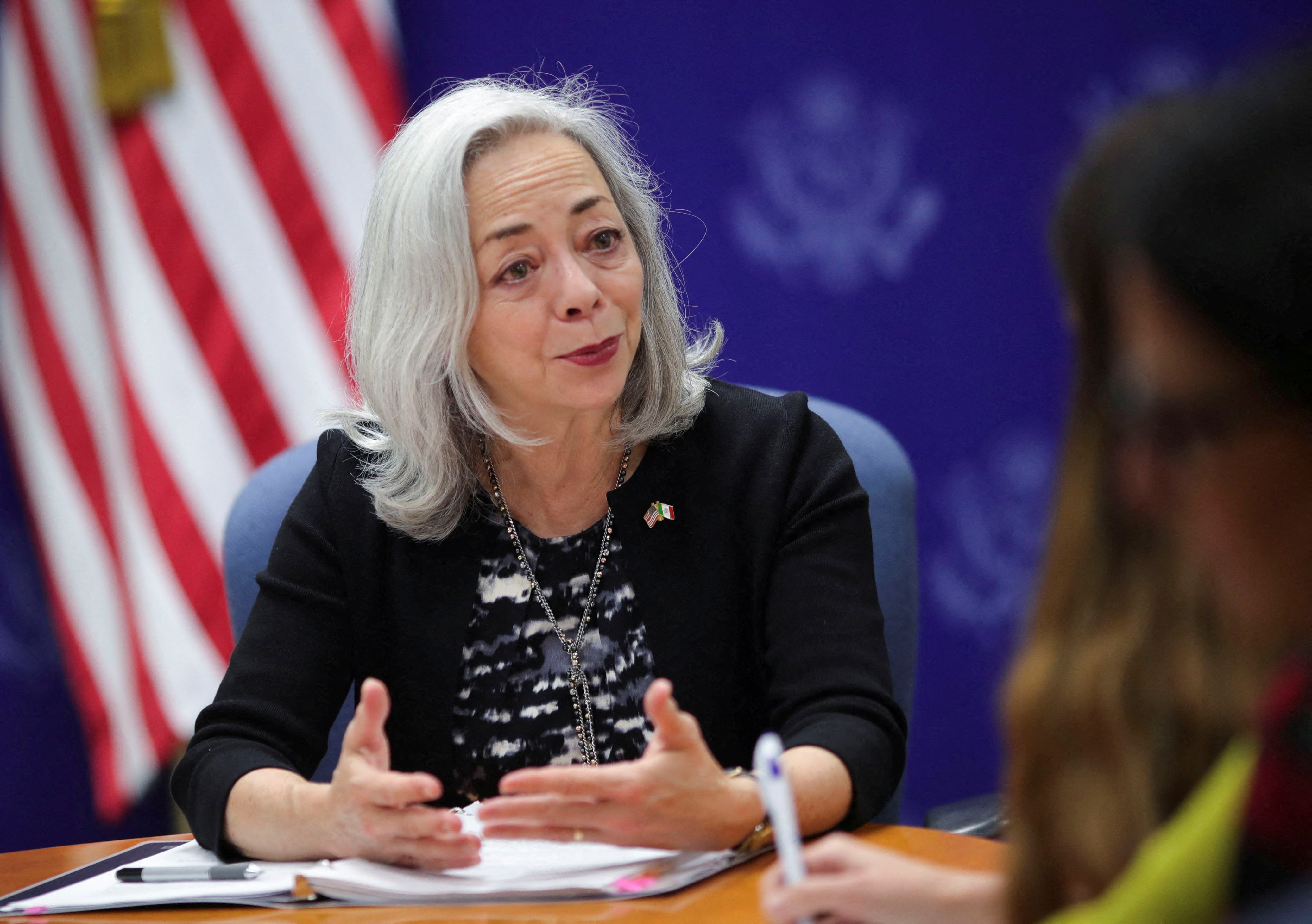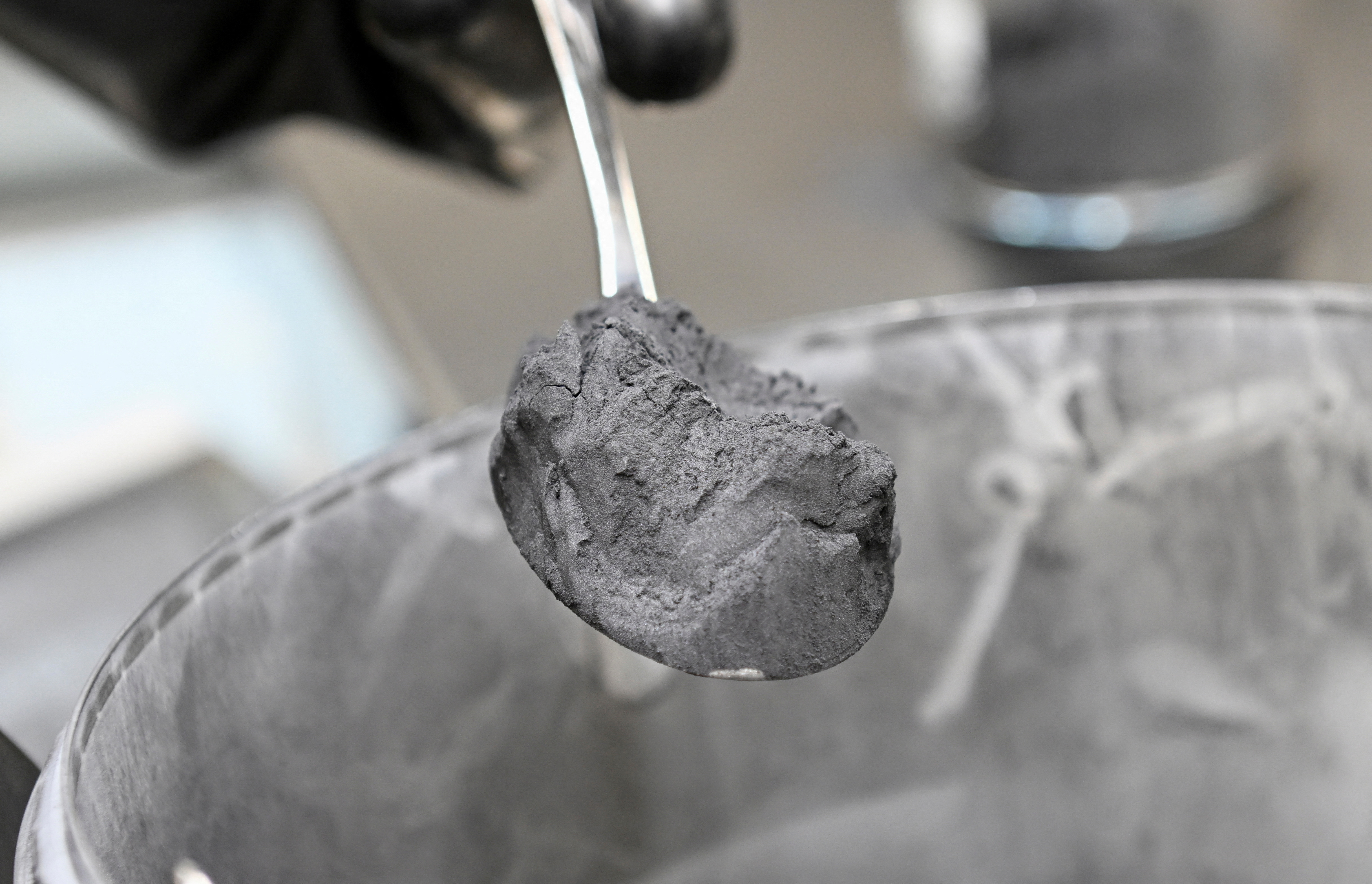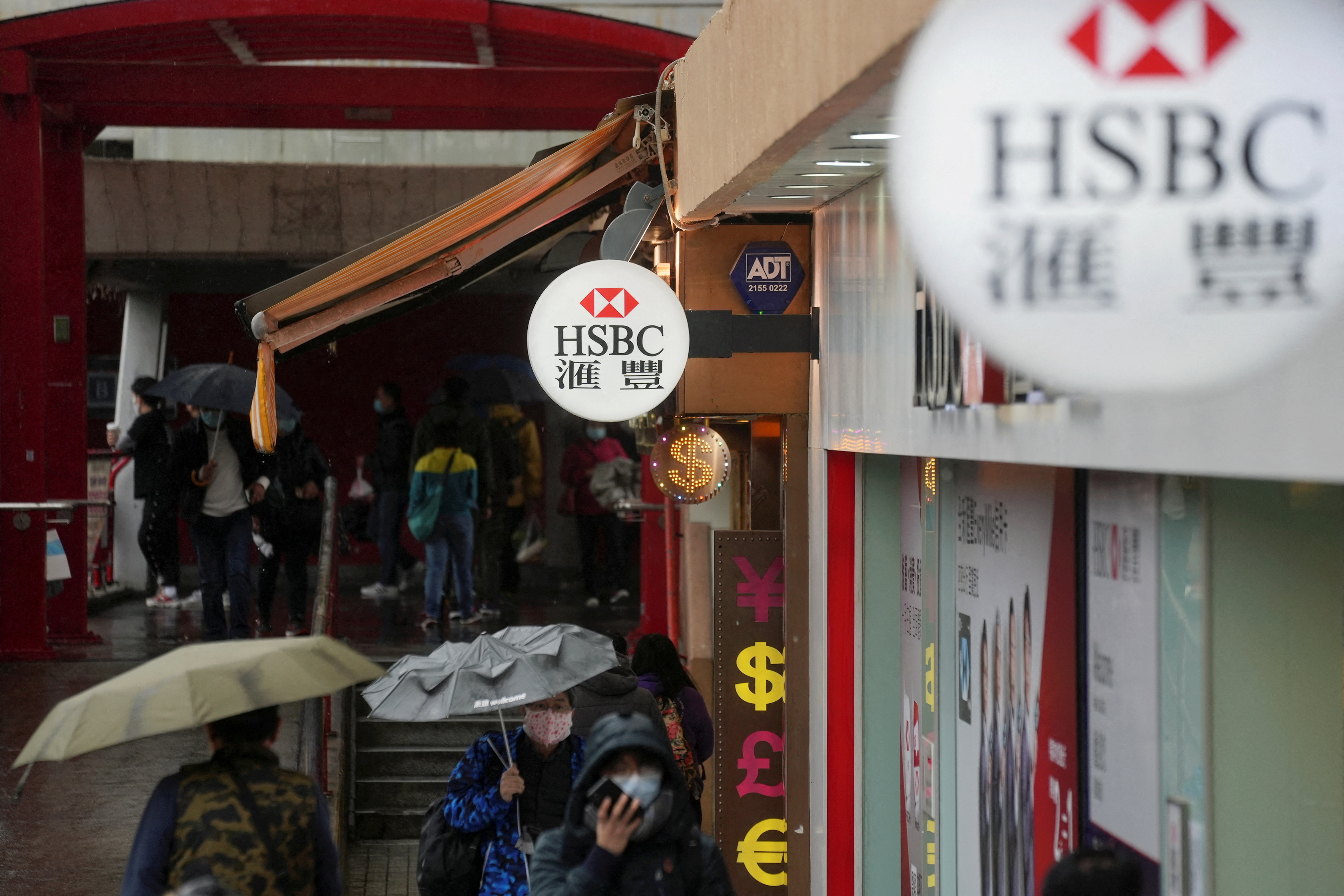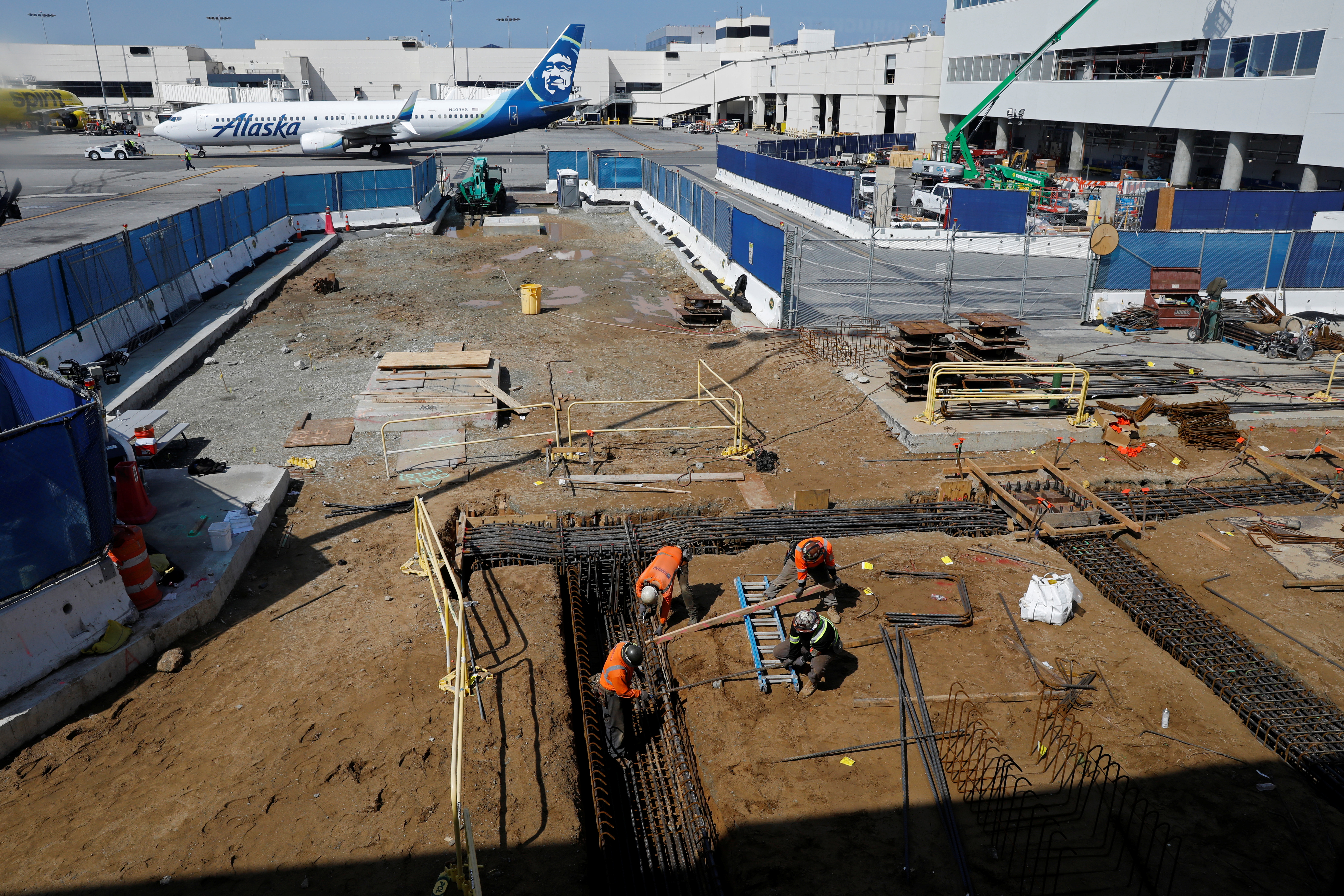Hong Kong businesses shut shop as city struggles to revive post pandemic
香港企业因城市在疫情后复苏困难而关闭
HONG KONG, April 30 (Reuters) - When Jacky Yu, 48, opened his Japanese gift shop in Hong Kong more than a decade ago, the tourist and shopping district of Mong Kok was a bustling hub packed with stalls, street food and tourists.
香港,4 月 30 日(路透社)- 48 岁的余先生十多年前在香港开设了他的日本礼品店时,旺角这个旅游和购物区还是一个熙熙攘攘的中心,挤满了摊位、街头美食和游客。
香港,4 月 30 日(路透社)- 48 岁的余先生十多年前在香港开设了他的日本礼品店时,旺角这个旅游和购物区还是一个熙熙攘攘的中心,挤满了摊位、街头美食和游客。
Fast-forward 12 years and parts of the area are struggling to stay afloat, a combination of customers emigrating, locals heading across the border to shop in China or travelling to Japan to benefit from a weak yen - and a dearth of tourists.
快进 12 年,该地区的部分地区正努力维持生计,客户移民、当地人前往中国边境购物或前往日本受益于疲弱的日元汇率,以及缺乏游客的组合。
快进 12 年,该地区的部分地区正努力维持生计,客户移民、当地人前往中国边境购物或前往日本受益于疲弱的日元汇率,以及缺乏游客的组合。
Yu says he's had to make the "heartbreaking" decision to close his store and move it online.
余表示,他不得不做出“令人心碎”的决定,关闭他的商店并将其转移到网上。
余表示,他不得不做出“令人心碎”的决定,关闭他的商店并将其转移到网上。
"I almost want to cry when I talk about it," said Yu, packing his unsold stationery and toys into storage boxes.
“每当谈到这件事,我几乎想哭,”余说着,把他的未售出的文具和玩具装进储物箱里。
“每当谈到这件事,我几乎想哭,”余说着,把他的未售出的文具和玩具装进储物箱里。
"There are very few tourists on the streets, even the mainland Chinese are very few."
街上几乎没有游客,即使是中国大陆游客也很少。
街上几乎没有游客,即使是中国大陆游客也很少。
Hong Kong is struggling to recover since the COVID pandemic, which saw many expatiates leave after a three year shutdown, and tourist numbers dwindle to a fraction of pre-pandemic levels. High rents and a labour shortage are now adding to the pain.
自 COVID 疫情以来,香港一直在努力恢复,许多外籍人士在三年的关闭后离开,游客数量也降至疫情前的一小部分。高昂的租金和劳动力短缺现在正在加剧痛苦。
自 COVID 疫情以来,香港一直在努力恢复,许多外籍人士在三年的关闭后离开,游客数量也降至疫情前的一小部分。高昂的租金和劳动力短缺现在正在加剧痛苦。
Businesses describe shopping malls as "dead", with low foot traffic and shops covered with "for lease" or "coming up soon" signs.
商家将购物中心描述为“死气沉沉”,人流量低,商店上挂着“待租”或“即将开业”的招牌。
商家将购物中心描述为“死气沉沉”,人流量低,商店上挂着“待租”或“即将开业”的招牌。
Edmund Wong, an accountancy sector lawmaker, told the city's legislature last Friday that more than 20,000 companies had deregistered in the first quarter of 2024, up more than 70% from the same period last year.
会计行业立法者黄志贤上周五告诉该市立法机构,2024 年第一季度有超过 20,000 家公司注销登记,比去年同期增长超过 70%。
会计行业立法者黄志贤上周五告诉该市立法机构,2024 年第一季度有超过 20,000 家公司注销登记,比去年同期增长超过 70%。
Simon Wong, president of the Hong Kong Federation of Restaurants and Related Trades, told public broadcaster RTHK that he estimated around 200-300 restaurants had closed over the past month, a trend he expects to continue.
香港餐饮业联合会主席黄健平告诉公共广播机构 RTHK,他估计过去一个月已有大约 200-300 家餐厅关闭,他预计这一趋势将继续下去。
香港餐饮业联合会主席黄健平告诉公共广播机构 RTHK,他估计过去一个月已有大约 200-300 家餐厅关闭,他预计这一趋势将继续下去。
On Tuesday, Hong Kong leader John Lee played down concerns about businesses closing.
香港领导人李家超周二淡化了有关企业关闭的担忧。
香港领导人李家超周二淡化了有关企业关闭的担忧。
"The world is always changing, and different industries will need to adapt, so there will be operators who are not so successful but new-comers are getting into the market."
世界一直在变化,不同的行业需要适应,因此会有一些运营商不那么成功,但新来者正在进入市场。
世界一直在变化,不同的行业需要适应,因此会有一些运营商不那么成功,但新来者正在进入市场。
[1/5]People walk past a closed-down retail shop in Tsim Sha Tsui, Hong Kong, China April 29, 2024. REUTERS/Tyrone Siu Purchase Licensing Rights
[1/5]2024 年 4 月 29 日,中国香港尖沙咀,人们经过一家关闭的零售店。REUTERS/Tyrone Siu 购买许可证
[1/5]2024 年 4 月 29 日,中国香港尖沙咀,人们经过一家关闭的零售店。REUTERS/Tyrone Siu 购买许可证
Even with the Golden Week holiday starting on Wednesday, a traditionally busy time for shopping and entertainment, many businesses are not optimistic.
即使在黄金周假期开始的星期三,这是一个传统的购物和娱乐繁忙的时期,许多企业也不乐观。
即使在黄金周假期开始的星期三,这是一个传统的购物和娱乐繁忙的时期,许多企业也不乐观。
"I don’t think the Golden Week will help much," said Wendy, 54, who works at a noodle shop in Mong Kok's Ladies Market.
“我不认为黄金周会有太大帮助,”54 岁的 Wendy 在旺角女人街的一家面店工作。
“我不认为黄金周会有太大帮助,”54 岁的 Wendy 在旺角女人街的一家面店工作。
"There were many tourists on this street ... but they're gone now."
“这条街上曾经有很多游客……但现在他们都走了。”
“这条街上曾经有很多游客……但现在他们都走了。”
Hong Kong residents are also deserting local shops and increasingly travelling across the border to the southern Chinese city of Shenzhen for food and entertainment, where they say prices and service are better.
香港居民也在放弃本地商店,越来越多地前往中国南部城市深圳寻找食物和娱乐,他们表示那里的价格和服务更好。
香港居民也在放弃本地商店,越来越多地前往中国南部城市深圳寻找食物和娱乐,他们表示那里的价格和服务更好。
"Hong Kong people are heading north to consume, which has become a clear trend. On weekends, many Hong Kong people go to Shenzhen for consumption," said Ting Lu, chief China economist at Nomura based in Hong Kong.
"香港人正向北方消费,这已经成为一个明显的趋势。在周末,许多香港人前往深圳消费,"总部位于香港的野村首席中国经济学家陆挺表示。
"香港人正向北方消费,这已经成为一个明显的趋势。在周末,许多香港人前往深圳消费,"总部位于香港的野村首席中国经济学家陆挺表示。
"The reason is that in the past five years, prices in Shenzhen, Guangzhou, and even Changsha have hardly changed much. But in Hong Kong ... We have found that the price difference has widened, which has encouraged Hong Kong people to go north for consumption."
原因在于过去五年,深圳、广州甚至长沙的价格几乎没有太大变化。但在香港...我们发现价格差距扩大了,这鼓励了香港人北上消费。
原因在于过去五年,深圳、广州甚至长沙的价格几乎没有太大变化。但在香港...我们发现价格差距扩大了,这鼓励了香港人北上消费。
After Hong Kong reopened its border post-pandemic with China last year, the Tourism Board recorded a 38.9% drop in mainland visitors in 2023, compared with 2019 before the pandemic.
香港在疫情后与中国重新开放边境后,旅游事务处记录显示,2023 年与疫情前 2019 年相比,内地游客减少了 38.9%。
香港在疫情后与中国重新开放边境后,旅游事务处记录显示,2023 年与疫情前 2019 年相比,内地游客减少了 38.9%。
Spending by same-day mainland tourists plunged 36.4% in 2023, dropping from an average of HK$2,200 per person in 2019 to HK$1,400 after the border reopened last year.
随同日内地游客的消费在 2023 年下降了 36.4%,从 2019 年每人平均消费的港币 2,200 元降至去年边境重新开放后的港币 1,400 元。
随同日内地游客的消费在 2023 年下降了 36.4%,从 2019 年每人平均消费的港币 2,200 元降至去年边境重新开放后的港币 1,400 元。
In the Hong Kong border town of Sheung Shui, where residents once used to complain about mainland Chinese overcrowding the town and pushing up rents as they flocked to buy everything from cosmetics and medicine to daily necessities, business is quiet.
在香港边境城镇上水,居民曾经抱怨大陆游客挤满城镇,推高租金,他们涌入购买从化妆品和药品到日常必需品的一切,但现在生意冷清。
在香港边境城镇上水,居民曾经抱怨大陆游客挤满城镇,推高租金,他们涌入购买从化妆品和药品到日常必需品的一切,但现在生意冷清。
Li, 30, a cosmetic shop keeper from Sheung Shui, said local consumers now tended to shop across the border in Shenzhen and the "the off-season" had now come earlier.
来自上水的 30 岁化妆品店老板李女士表示,现在本地消费者倾向于到深圳跨境购物,而“淡季”现在来得更早了。
来自上水的 30 岁化妆品店老板李女士表示,现在本地消费者倾向于到深圳跨境购物,而“淡季”现在来得更早了。
Lee, 35, a hamburger shopkeeper in Mong Kok district, said business had worsened since the border reopened.
现年 35 岁的李先生是旺角区一家汉堡店的老板,他表示自边境重新开放以来,生意变得更糟。
现年 35 岁的李先生是旺角区一家汉堡店的老板,他表示自边境重新开放以来,生意变得更糟。
"There is no one after eight o'clock, and it’s even scarier during the holidays. There are no tourists. Just like the past Easter holidays, we could sit and sleep here for three hours."
晚上八点后空无一人,假期期间更是令人胆战心惊。没有游客。就像过去的复活节假期一样,我们可以坐在这里睡上三个小时。
晚上八点后空无一人,假期期间更是令人胆战心惊。没有游客。就像过去的复活节假期一样,我们可以坐在这里睡上三个小时。
Coming soon: Get the latest news and expert analysis about the state of the global economy with Reuters Econ World. Sign up here.
即将推出:通过路透经济世界(Reuters Econ World)获取关于全球经济状况的最新新闻和专家分析。立即注册。
Reporting by Jessie Pang, Joyce Zhou and Edward Cho, additional reporting by Kevin Yao in Beijing; Editing by Anne Marie Roantree and Michael Perry
由彭悦、周洁思和曹嘉文报道,北京补充报道由姚凯文提供;编辑为安玛丽·罗安婷和迈克尔·佩里
Our Standards: The Thomson Reuters Trust Principles.
我们的标准:汤姆逊路透信任原则。
